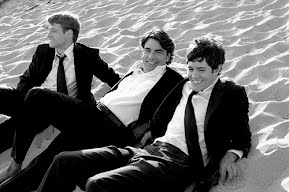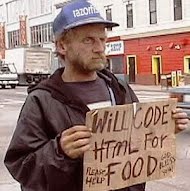California here we come

I'm here with a second annual helping of summertime nostalgia: Watching The O.C. with friends was prety much a staple of my otherwise TV-less college experience. Yes, the plotlines were silly and the actors were beautiful, but somehow The O.C. had just enough wit and emotional depth to feel a bit more substantial than other guilty pleasure TV shows.
Most importantly, with all its gorgeous shots of Coastal California, it played right into the excitement I felt during senior year about my then-upcoming move to the West Coast. And after more than 3 years, I still get a nervous, happy feeling when I hear the first notes to Phantom Planet's "California." Hey, media (and memory) can be a very powerful thing.
Anyway, I just came across this yesterday night and it made me irrationally, dumbfoundedly exuberant. For some reason, the fact that there's a blog called "FuckYeahTheOC" has made me love Tumblr.com, and, relatedly, our brilliant, crazy, funemployed media-saturated generation even more than I already did.
Eternal Spring of San Francisco

Yes, it's time to break out the sweaters and fire up the tea kettle for another typical San Francisco summer.
Mark Twain is often quoted as saying something like "the coldest winter I ever spent was a summer in San Francisco," but it turns out that's basically a myth. He did, however, once write of the "eternal Spring of San Francisco," which I think sounds much nicer, anyway.
Media parties and the vodka fizz

A lot of what New York Times reporter David Carr says in this interview about the state of the media is so true it's kind of sad. I saw some of the extravagance he mentions in my first amazing journalism gig in New York (at a magazine which has, incidentally, since folded.) I remember consciously trying to savor every fancy dinner, town car and nice hotel room, since for me, an entry-level 20-year-old, it all didn't really make sense.
But even when you know deep down that something is too good to be true, it's still upsetting when the inevitable end comes. It's starting to set in that the past 15 years have been an unsustainable anomaly for not just finance, but a lot of other industries too.
A particularly relevant excerpt of Carr's real talk:
"I think one thing that people do not understand is, as recently as four or five years ago, to be a member of Manhattan media, you weren't rich, but you lived as a rich person might. You went to the parties that a rich person would go to, you ate the food that a rich person would eat, you drank the vodka that a rich person would drink, and you'd end up in black cars, and you'd end up sometimes on boats and in helicopters.
"We lived as kings, and it convinced us, I think, that there was a significant underlying value to what we did. And I think we're finding out now that the real, actual value of journalism in the current economy is not that high."
Let them eat Tweets

I thought Liz Smith was on to something when I blogged back in March about her prediction that "We're going to have the Internet even when we don't have things to eat." But who knew than an off-hand comment from an octogenarian New Yorker would come to bear so quickly right here in San Francisco?
This past weekend's Wall Street Journal reported on the growing number of homeless people with Facebook pages, Twitter accounts, and email addresses. According to the paper, "In America today, even people without street addresses feel compelled to have Internet addresses."
It seems absurd at first, but is it really?
Think about the increasing numbers of people who devote hours to networking on LinkedIn while unemployed. Or those of us who can easily go weeks without speaking to family and longtime friends, but regularly spend hours keeping up with strangers' blogs or "interacting" with Facebook friends and Twitter followers-- many of whom we've only met in real life once or twice. Are we all really any different than the homeless people staking their claims on the Web?
I know the Internet can be exciting and beneficial-- I mean, I'm here, aren't I?-- but I try to be wary of the allure of "social media" and its rapid rise in popularity. There's something of the placebo effect in it all-- and I think it's important to be vigilant about what we're neglecting or sacrificing in the real world as we're busy cultivating our online "lives."